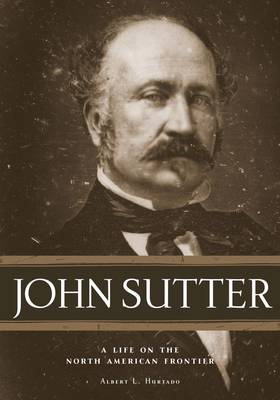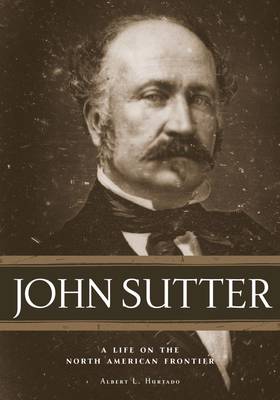
- Afhalen na 1 uur in een winkel met voorraad
- Gratis thuislevering in België vanaf € 30
- Ruim aanbod met 7 miljoen producten
- Afhalen na 1 uur in een winkel met voorraad
- Gratis thuislevering in België vanaf € 30
- Ruim aanbod met 7 miljoen producten
Prijzen
Omschrijving
In the history of the American frontier, John Sutter (1803-1880) looms large. A Swiss expatriate who attempted to create a personal empire in California's Sacramento Valley, he founded New Helvetia, a cosmopolitan settlement whose economy depended on Indian slaves and free laborers. New Helvetia drew overland immigrants to California in the 1840s and then-after gold was discovered by Sutter's employees-a flood of fortune seekers. Sutter was poised to become one of the richest men in the West, but rapacious settlers and his own poor business sense sent his dreams crashing.
Albert L. Hurtado has written the definitive biography of Sutter, mining a wealth of sources to create the first fully documented account of the man and his times. John Sutter explores Sutter's life in the broader context of America's rush for westward expansion while plumbing the inner dynamics of this erstwhile empire-builder.
Sutter was a quintessential outsider driven by anxiety over status-a man of talent, vision, and heroic ambitions who nevertheless became the victim of his own inadequacies as a businessman and his inability to adjust to a rapidly changing frontier. Sutter was full of contradictions. While building a reputation as a humanitarian friend of destitute immigrants, he callously exploited Indians. Nevertheless, this penniless dreamer became one of the most important men in California and a major player in the American conquest of the West.
Specificaties
Betrokkenen
- Auteur(s):
- Uitgeverij:
Inhoud
- Aantal bladzijden:
- 434
- Taal:
- Engels
Eigenschappen
- Productcode (EAN):
- 9780806137728
- Verschijningsdatum:
- 1/10/2006
- Uitvoering:
- Hardcover
- Formaat:
- Genaaid
- Afmetingen:
- 187 mm x 256 mm
- Gewicht:
- 934 g

Alleen bij Standaard Boekhandel
Beoordelingen
We publiceren alleen reviews die voldoen aan de voorwaarden voor reviews. Bekijk onze voorwaarden voor reviews.













